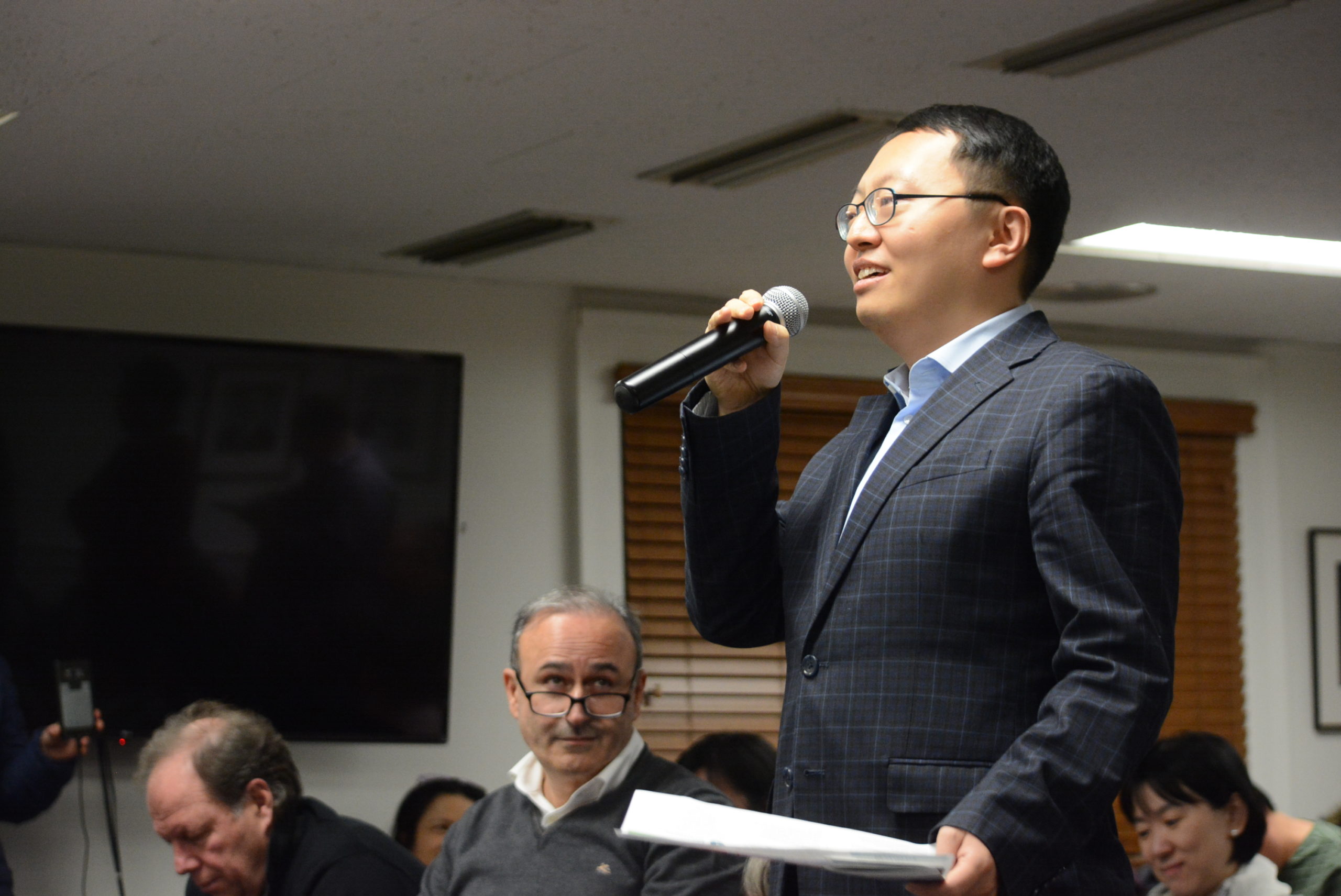The Village of Great Neck’s attorney will be drafting “significant” amendments to proposed incentive zoning changes, officials said on Tuesday, after residents once again expressed concerns about the proposed zoning changes and the reports behind the proposal.
Residents filled Village Hall, with some raising flyers about congestion, preservation and saying “no” to “rezoning.” Among their concerns were fears of possible five-story buildings, overdeveloping the village, and worsening traffic.
The incentive overlay district would essentially act as a blanket over parts of Middle Neck Road and East Shore Road, allowing the Board of Trustees to determine on a case-by-case basis, subject a public hearing, whether or not to offer developers to add an extra floor in certain projects.
The additional floor would serve as an incentive for developers in exchange for a “community benefit,” such as affordable housing, commercial development or assisted living facilities.
Mayor Pedram Bral said the village plans to “significantly amend the proposed local law based on what we have heard so far” and continue the public hearing into the next meeting.
“We’re not closing it tonight. I would like to hear positive comments and recommendations of what people would like to see and we’re going to take all those things into account,” Bral said. “But, for now, we’re just going to hear their people and their recommendations before we table the meeting.”
Amy Glass, a Great Neck resident, said the report by VHB, an engineering firm serving as the village’s consultant for revitalization, buried important details about things like the construction of new apartments at Millbrook Court and location of a new Village Hall.
She also said there was no data about traffic accidents, particularly near the corner of Hicks Lane and Middle Neck Road where an assisted living facility is proposed, and said the rate of accidents there is considerably higher than that of North Station Plaza.
“If you go ahead with the plan… change the name of Middle Neck Road to Bottleneck Road,” Glass said.
A few other residents like Jenni Lurman and Kovid Saxena also raised concerns about the validity of the draft environmental impact statement, which had suggested there’d be no adverse impact on the proposal.
“The DGEIS is inadequate. The stated purpose and need in the DGEIS is flawed,” Saxena said of the Draft Generic Environmental Impact Statement. “And the DGEIS is premised on a study that is substandard.”
Some people also offered suggestions that would not involve changes to the zoning code in hopes of revitalizing the area, which were highlighted on a brochure distributed to meeting attendees prior to the start of the meeting.
Te Bai, a Great Neck Plaza resident, said the changes are based on three simple steps: “vision, effort, and love.”
Among the changes are encouraging local spending by helping local businesses get contracts with local entities, offering local events, identifying the right businesses, expediting the approval process, and partnering with banks to get better loan rates, Bai said.
Bai also suggested taking advantage of younger people in Great Neck, suggesting the creation of community service programs that would allow them to help businesses get makeovers, with website creation and other initiatives.
Bral said it was a “bit disingenuous” that a resident from Great Neck Plaza would be at the meeting “complaining about our overdevelopment.”
Kris Torkan of Villadom Corp., which facilitated Marie Blachére’s move to Great Neck, said he found the VHB report to be well done, but that they alone cannot come up with an effective master plan that could help the peninsula.
He said more community meetings to find ways to upgrade and improve the community are pivotal.
“I know it’s a difficult task, but by discussion, public comments and these types of meetings, we can come up at least with a start,” Torkan said. “We need to start somewhere.”
In unrelated business, trustees voted to extend former Building Superintendent Robert Barbach’s consulting contract with the village to June 30, 2019, at a rate of $106 per hour for no less than 10 hours per week.
Going over 10 hours per week requires permission of the building department.
Joe Gill, the village clerk-treasurer, said this is to retain Barbach’s knowledge on ongoing projects.
Trustees also approved the installation of a 6 a.m. to 1 p.m. parking restriction sign near 3 Ruth Court.
The next hearing will take place on Tuesday, March 19 at 7:30 p.m.



